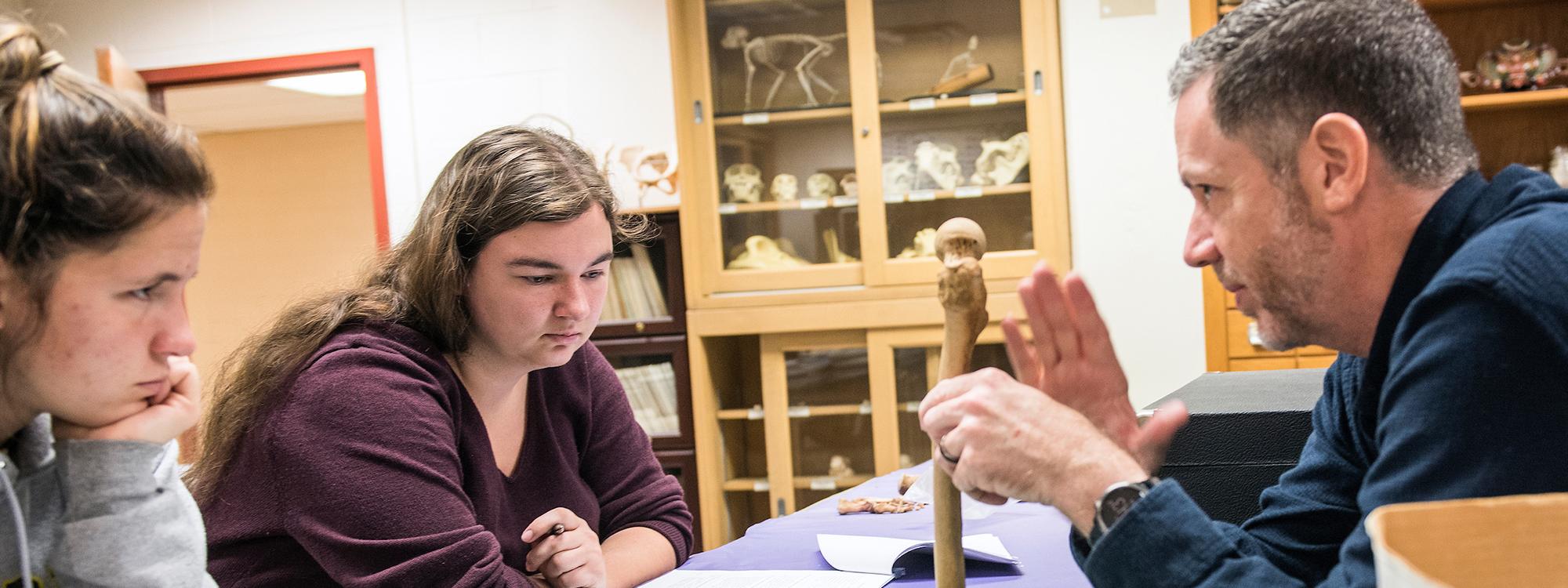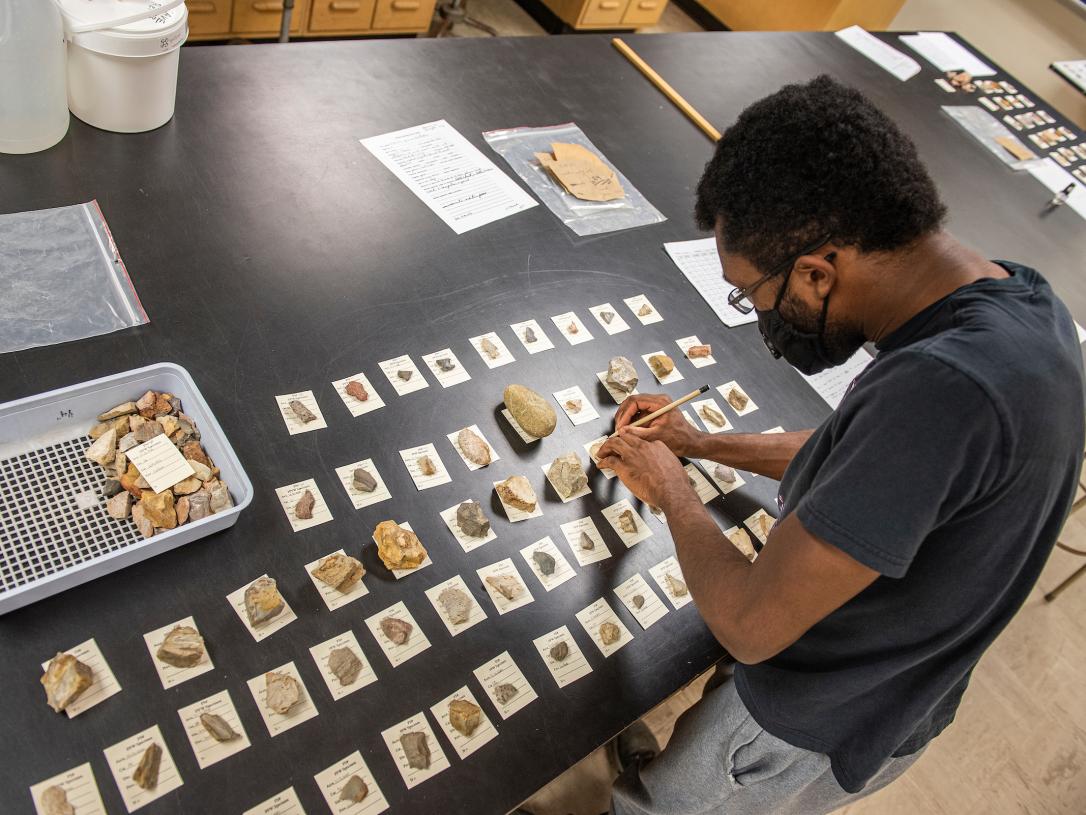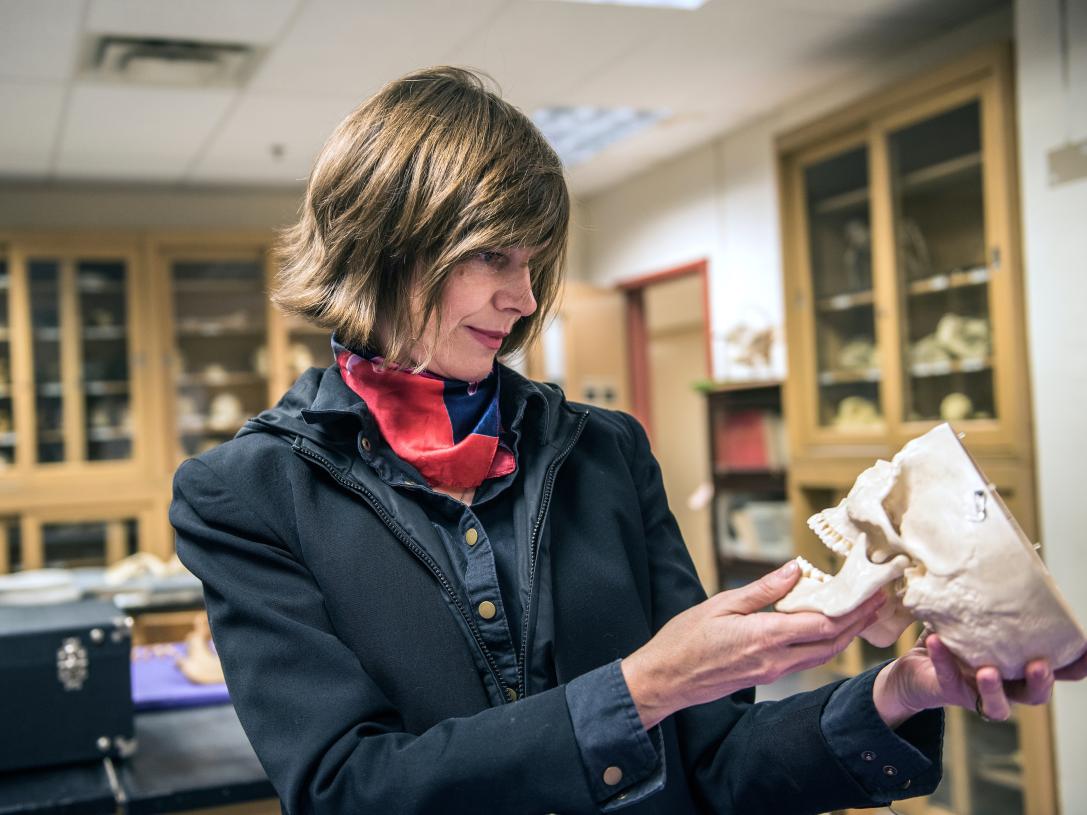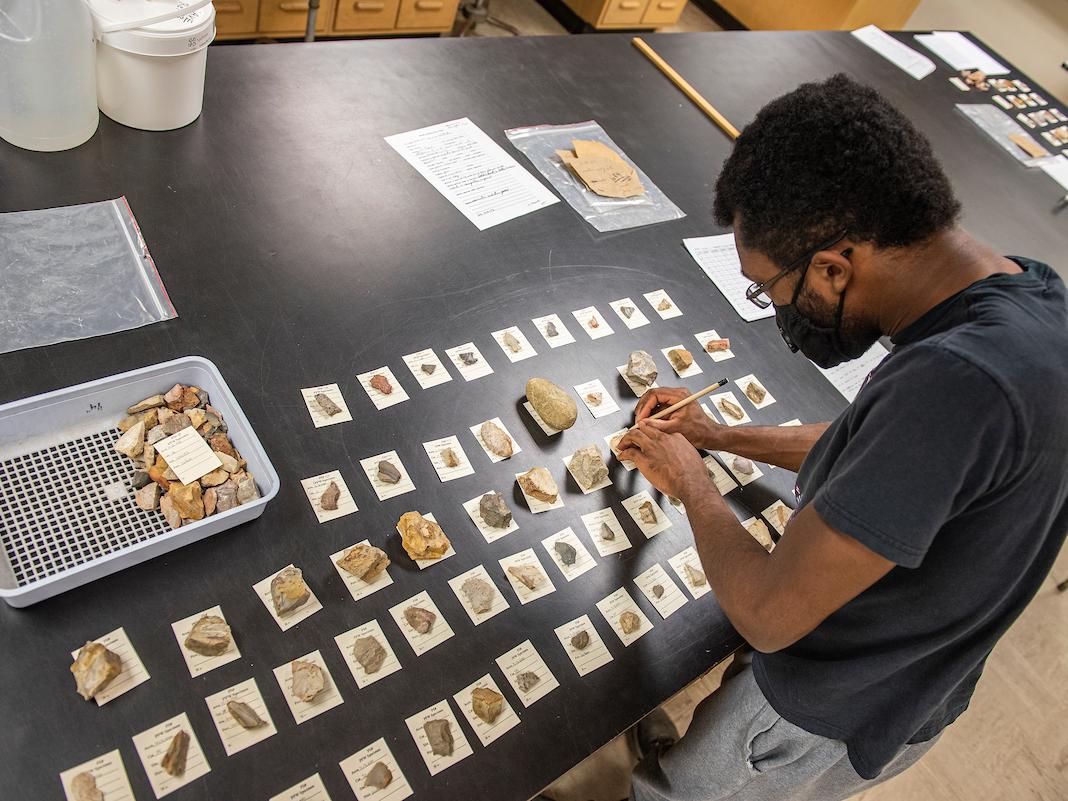
Anthropology and Sociology Programs
Study what fascinates you while acquiring a strong liberal arts background.
The skills you’ll learn through our programs are essential to many different careers, which opens more doors than you may think.

Cultural Resource Management Certificate
With a certificate in cultural resource management, you’ll be able to identify and investigate cultural resources, such as archaeological and historical sites, structures, and artifacts, and develop plans for preservation, curation, and ethical use. Develop skills you need for careers in professional archaeological firms; environmental consulting and management firms; museums and archives; and relevant local, state, and federal government agencies.

Program
Highlights
Program Highlights
- Certificate meets or exceeds the requirements to be hired as an archaeological field worker in most states, including Indiana, and entry-level federal positions in archaeology
- Complete a summer archaeological field school led by industry professionals
- Round out your training in archaeology with an elective in environmental science, geology, history or geospatial mapping
- Support from Mastodon community
- A prestigious Purdue education
career and salary data
How far will you go?
General labor market and salary data are provided by Lightcast via O*NET and may not represent the outcomes experienced by Purdue Fort Wayne graduates in these programs. Purdue Fort Wayne graduates in these programs may earn salaries substantially different or less than the amounts listed. Salary and employment outcomes vary by geographic area, previous work experience, education, and opportunities for employment that are outside Purdue Fort Wayne’s control. Purdue Fort Wayne does not guarantee employment placement, salary level, or career advancement.
Student Learning Outcomes
Upon completion of this certificate, students will be able to demonstrate the following learning outcomes:
- Explain key concepts, theories, and perspectives of archaeology and cultural resource Management (CRM)
- Understand and apply federal resource laws, regulations, and requirements surrounding cultural, historical, and archaeological remains
- Demonstrate proficiency in the basic field techniques associated with CRM, including surveying, mapping, spatial analysis, and excavation
- Identify and properly categorize historical and culturally significant sites, structures, and artifacts common to the midwestern United States
- Demonstrate proficiency in laboratory methods associated with the identification, analysis and preservation of physical artifacts
- Communicate research findings effectively to diverse stakeholders, including the scientific community, government agencies, landowners, and the general public
- Architectural Historian
- Contract Archaeologist
- Environmental Consultant
- Historical Preservationist
- National Park Service Archaeologist
- Museum Curator
- Laboratory Technician
- State Historical Preservation Officer




